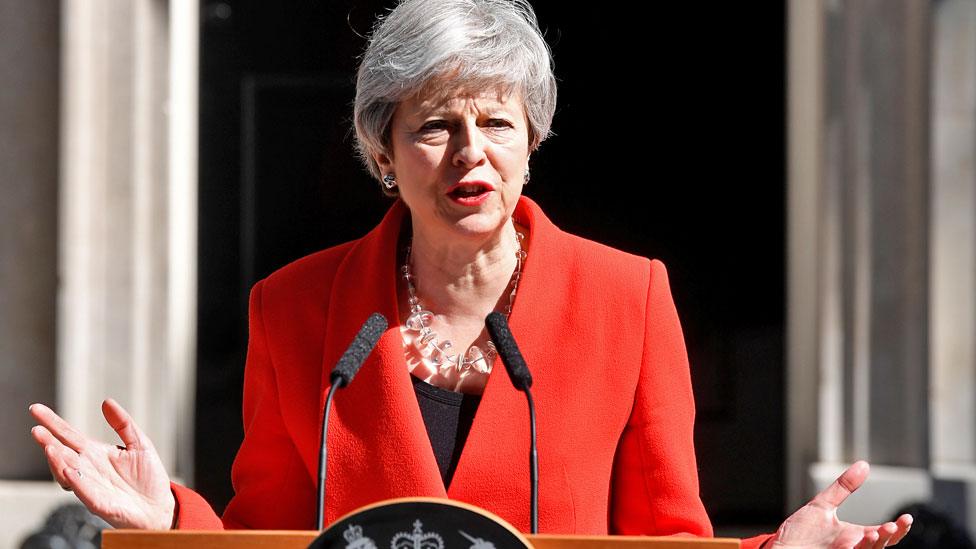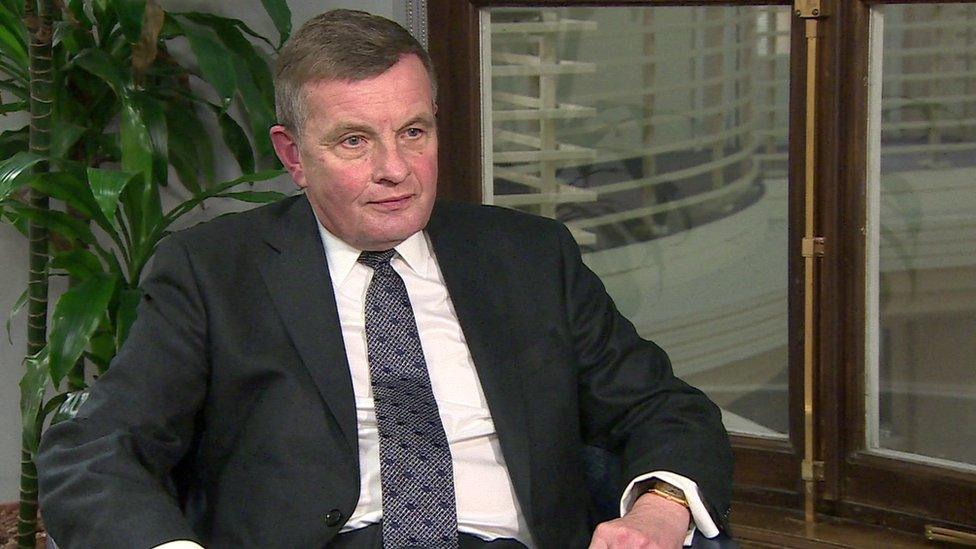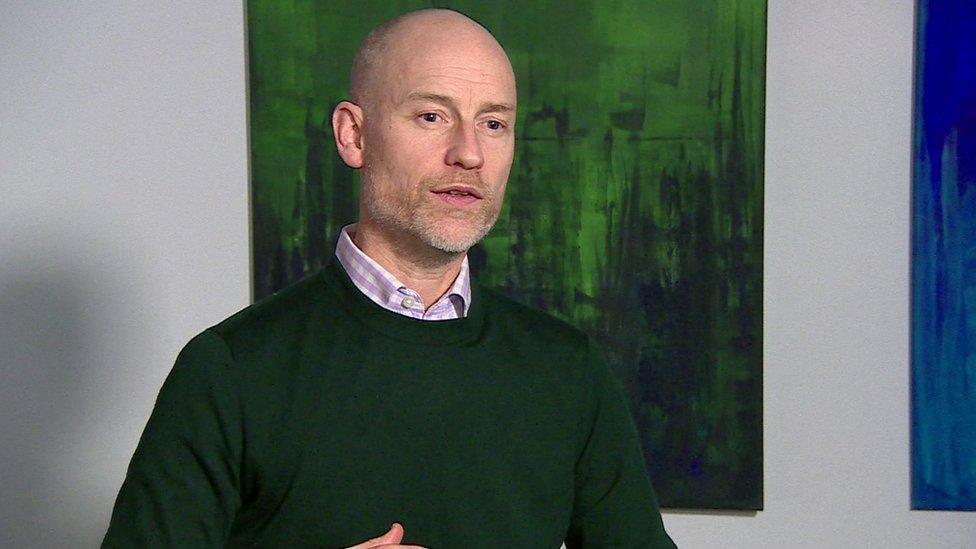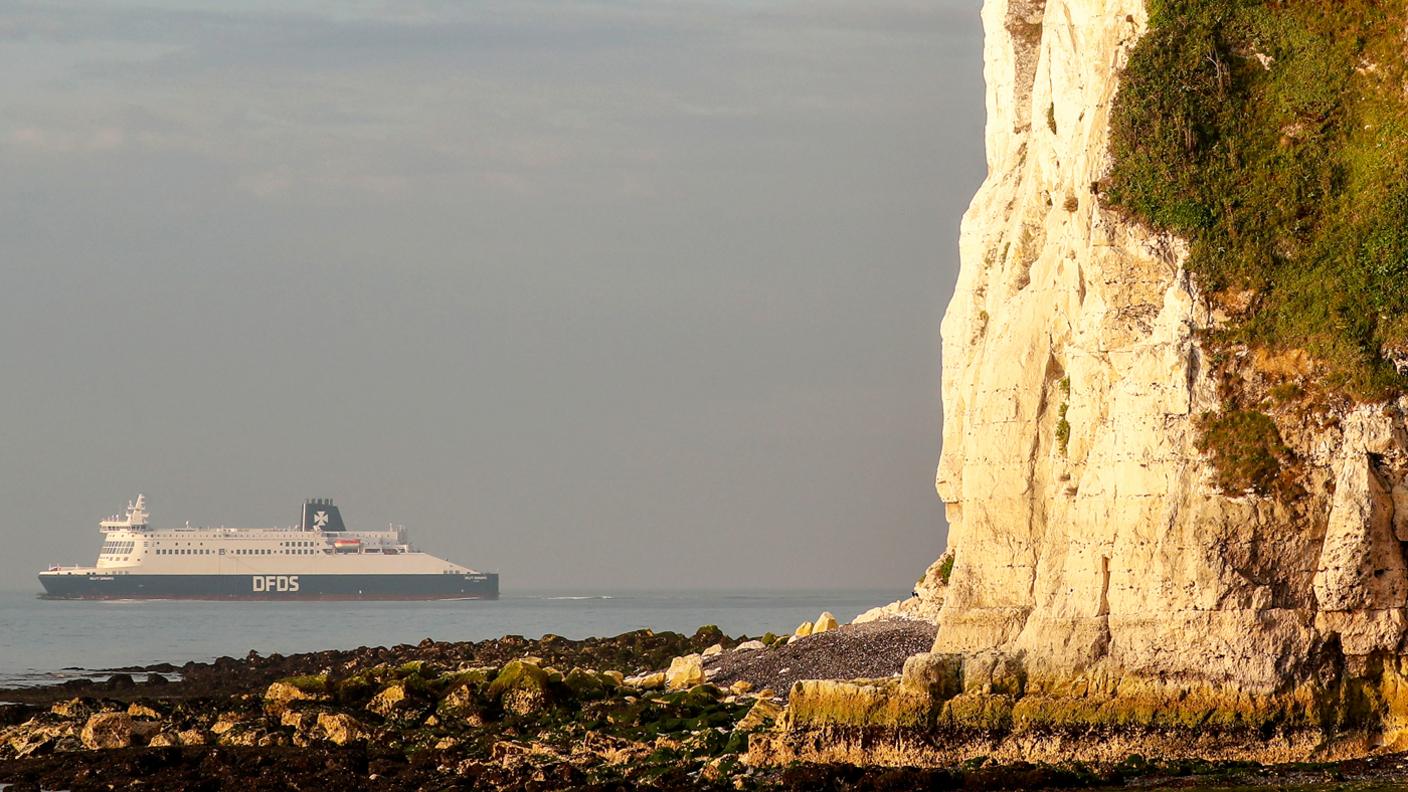Theresa May was 'not ousted' as PM by ERG group, MP says
- Published

Theresa May announced her resignation in May 2019
Theresa May was not ousted as prime minister by a group of Eurosceptic MPs who refused to back her Brexit deal, its deputy chairman David Jones says.
While the European Research Group (ERG) - made up of Conservative MPs - has no official role in parliamentary proceedings, it has been considered influential during the Brexit process.
At one stage, the group orchestrated a no-confidence vote in Mrs May.
Clwyd West MP Mr Jones said he had no regrets about defying her.
He said other MPs besides the ERG also had concerns about her Withdrawal Agreement.
In a BBC Wales interview series with figures from both sides of the Brexit campaign in Wales, Mr Jones said: "[The ERG] was always a group of Eurosceptic MPs, but it also did a great deal of research.
"It was very helpful for us during the battle for independence from the EU by knowing precisely what the arrangements were under which we would leave."
The pro-Brexit group disagreed with Mrs May's plans for trading arrangements with the EU and Mr Jones voted against her proposed Withdrawal Agreement three times.
Her deal was defeated by MPs in the House of Commons on each occasion during the early part of 2019.
She announced her resignation in May that year.
"In terms of ousting the prime minister, I don't think that's entirely fair," he said.

"Ultimately there were 28 members of the ERG who stood out - the so-called Spartans. I'm proud to be one of them"
"Certainly I think that the ERG members were quite disenchanted with Theresa May's performance because we felt the deal she had negotiated was not actually Brexit.
"But there were a lot of other members too who were equally concerned and had it just been the ERG then we would not have been able to remove the prime minister.
"It takes more than a small group of MPs to remove a prime minister. It takes general dissatisfaction and that was what was displayed.
"In the end, we didn't actually oust her - she decided her position was not tenable and she had to go."
He added voting down the Withdrawal Agreement could not have been "won without the assistance of the Labour party and that in itself is a paradoxical state of affairs".
But Mr Jones said he has no regrets about not compromising with his government earlier in the Brexit process to pass these votes.
"You always have to set out what your red lines are - so far as the United Kingdom side is concerned the red line is UK sovereignty," he said.
"I felt that what we did was a very important thing. Ultimately there were 28 members of the ERG who stood out - the so-called Spartans. I'm proud to be one of them.
"I believe that if we had compromised then we would have actually been compromising the independence of the UK.
"Frankly I would not have been able to look at myself in the mirror in the morning if I'd done that."
Allow X content?
This article contains content provided by X. We ask for your permission before anything is loaded, as they may be using cookies and other technologies. You may want to read X’s cookie policy, external and privacy policy, external before accepting. To view this content choose ‘accept and continue’.

When Boris Johnson took over as prime minister in July 2019, the Withdrawal Agreement was re-worked and passed following the Tories' election victory in December 2019 in which the party's majority increased to 80 seats.
The UK left the EU in January and through the transition period talks have been taking place on a new post-Brexit trade deal with the EU which comes into force on 1 January 2021.
When the trade deal was announced on 24 December, Mr Johnson said it could withstand the "most ruthless scrutiny" from the ERG.
Mr Jones is part of the group's self-styled "star chamber" of lawyers, led by Sir Bill Cash MP, who are examining the small print of the deal where "sovereignty is the key issue".
It is due to give its verdict on Tuesday ahead of a House of Commons vote on it on Wednesday.
Listen to the full interview - and other conversations with key figures from the Brexit campaign in Wales - each morning this week on BBC Radio Wales.
Related topics
- Published28 December 2020

- Published28 December 2020

- Published24 May 2019
